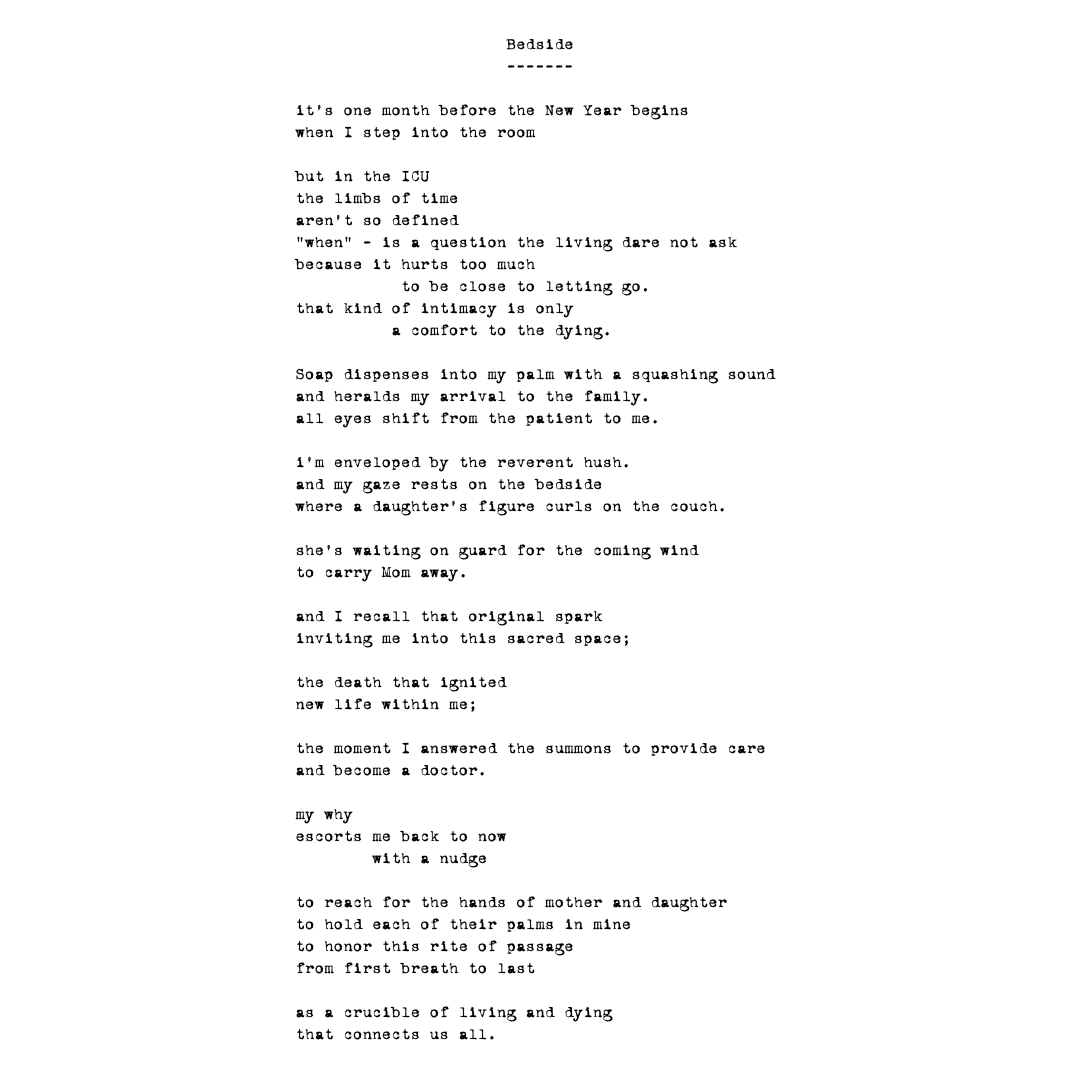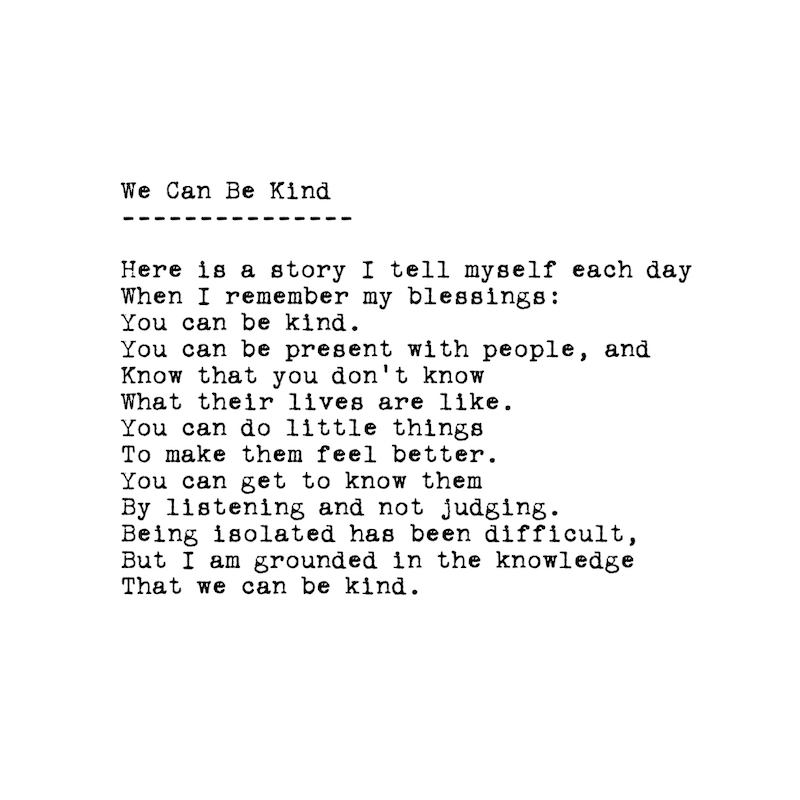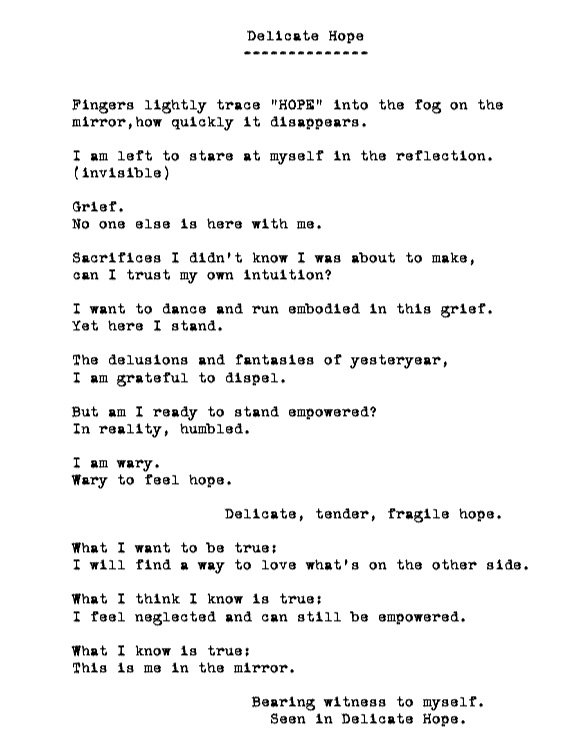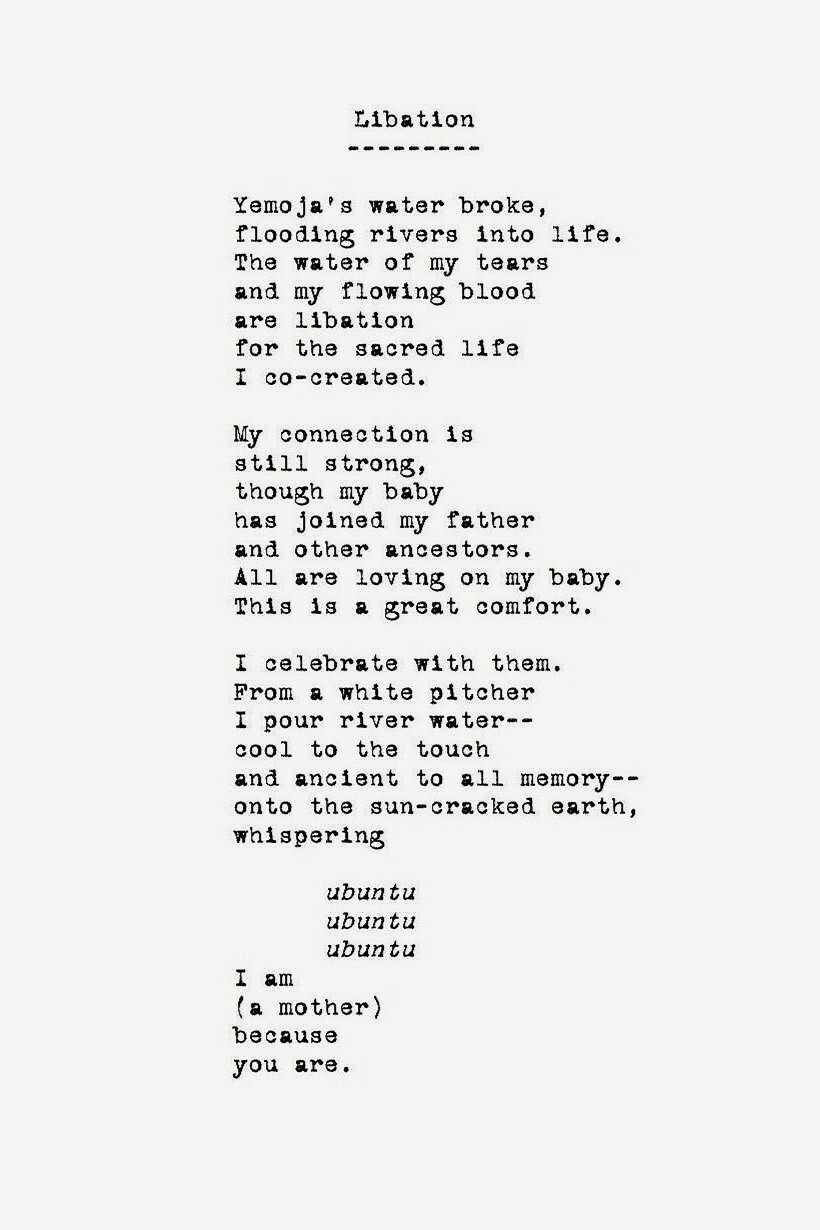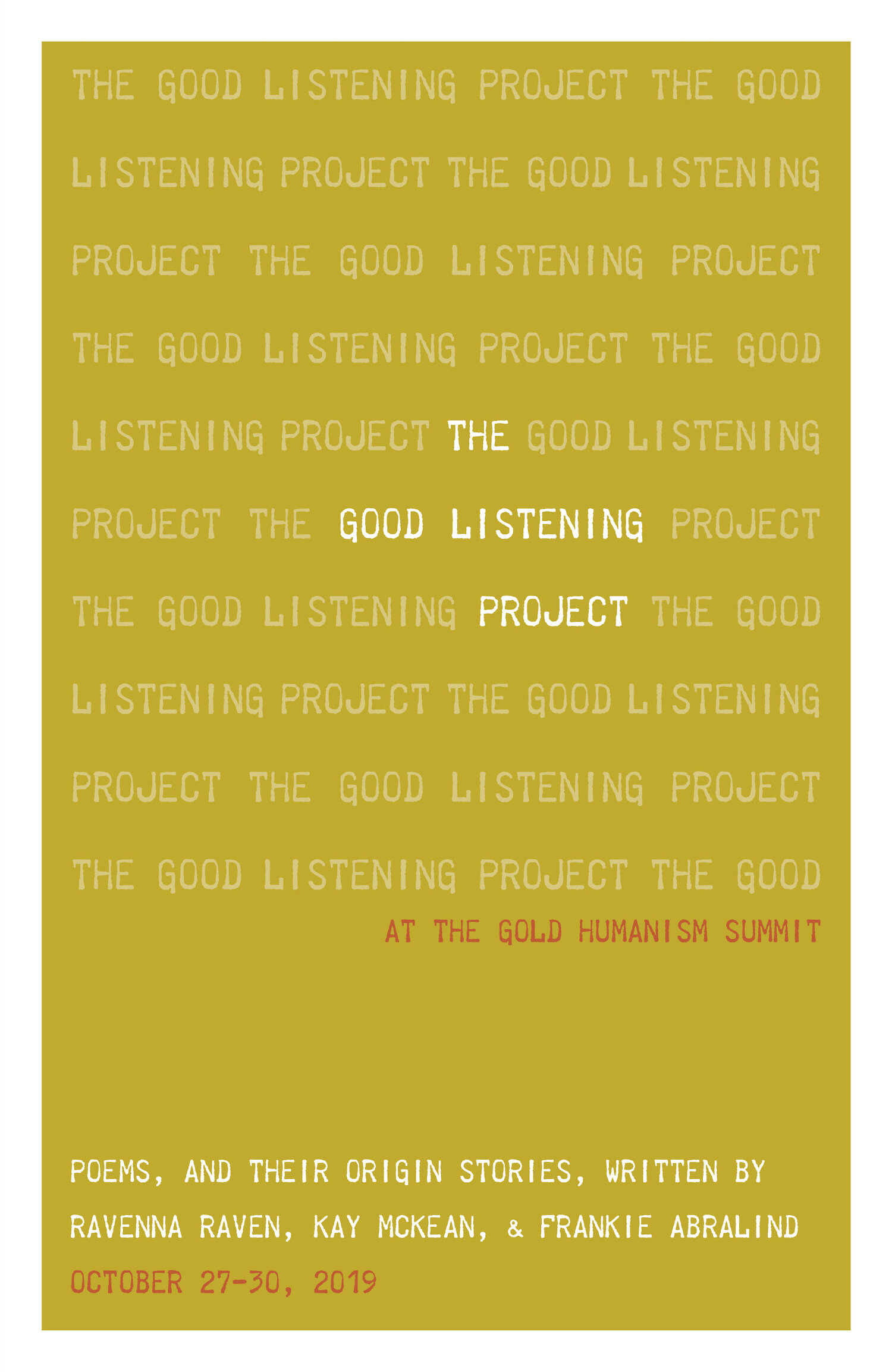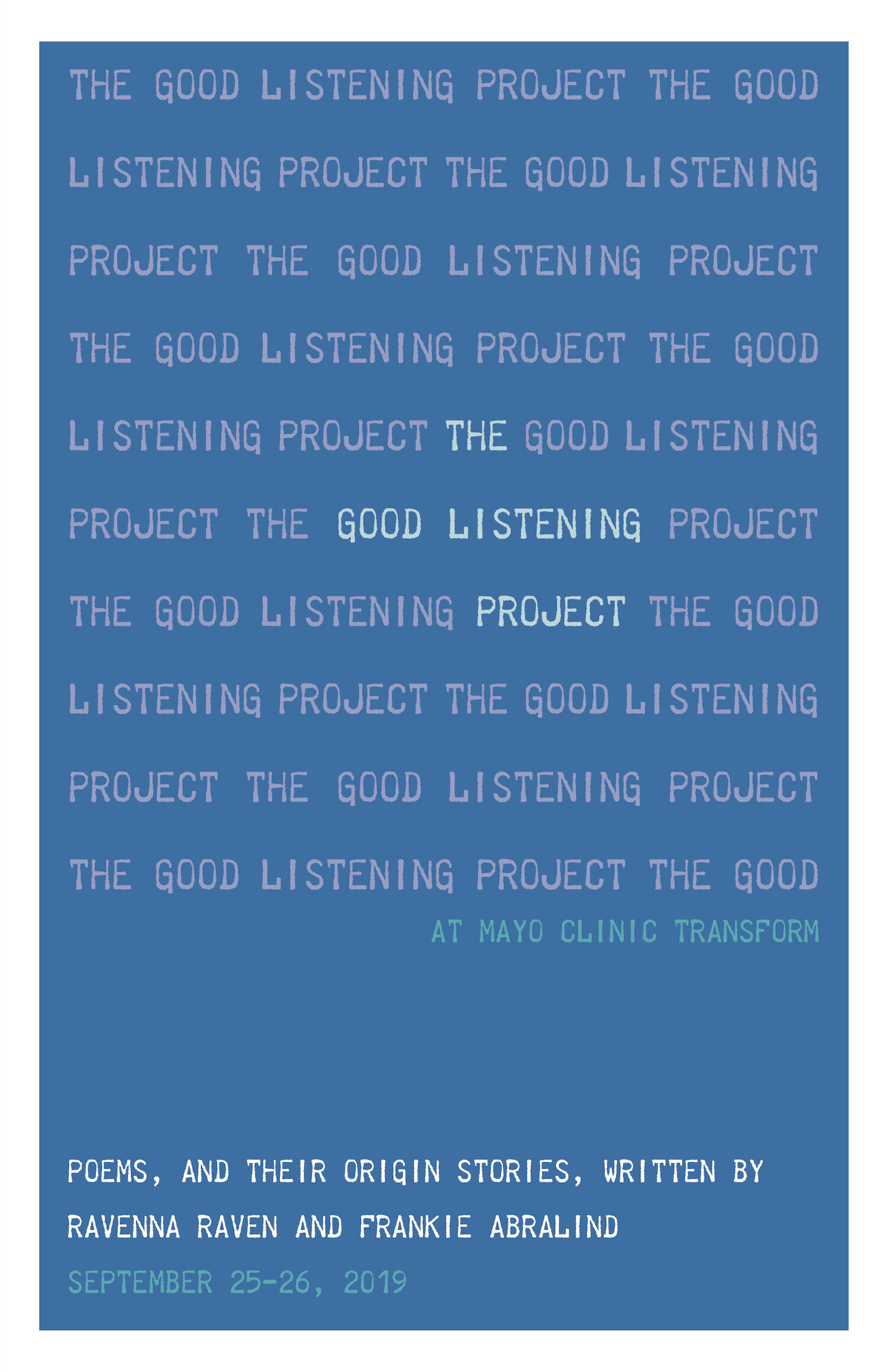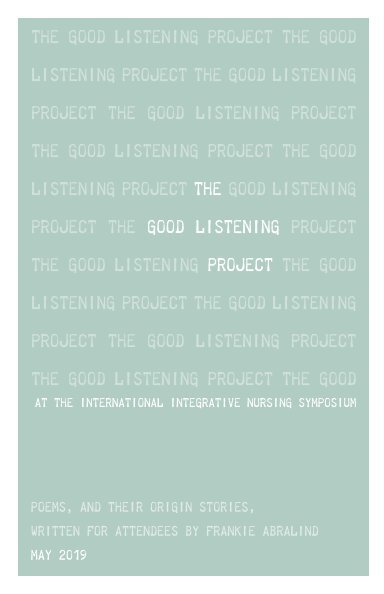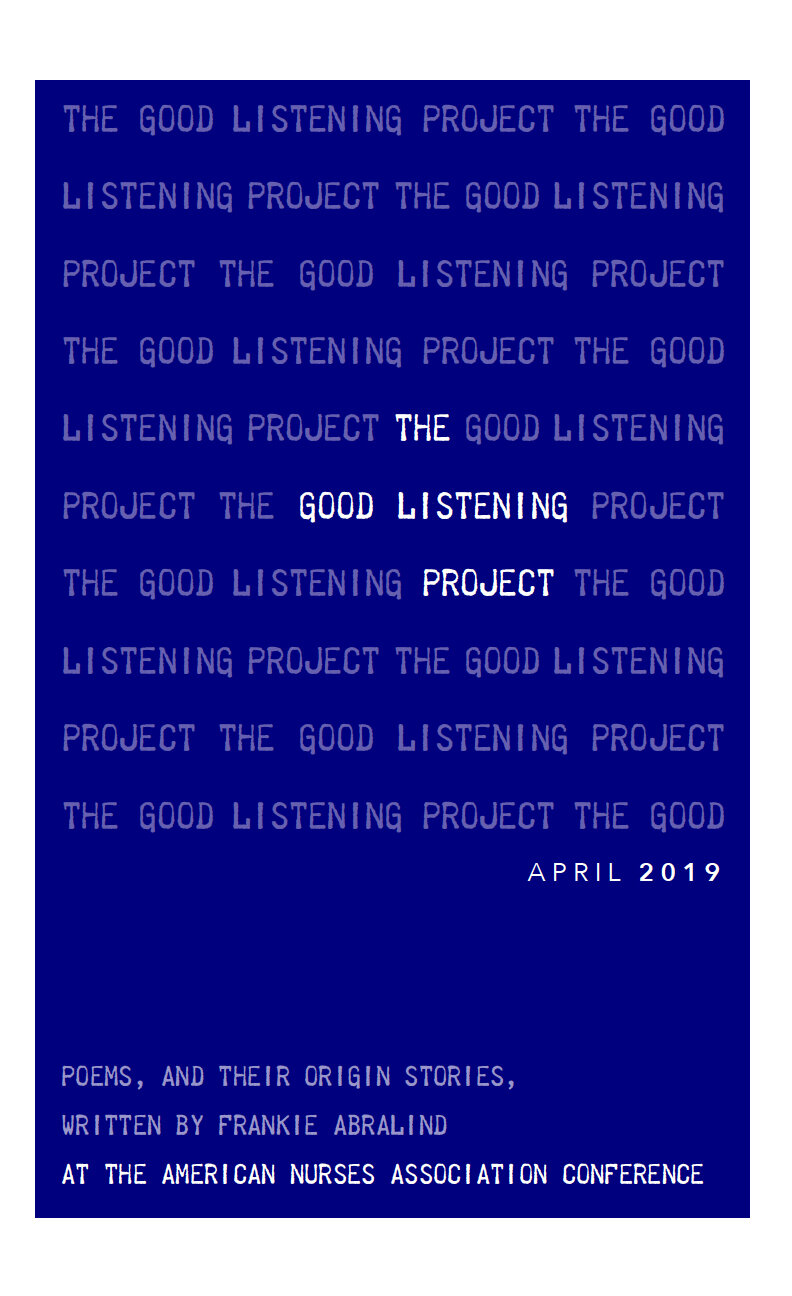The pandemic had forced this woman to slow her life down drastically.
Before, she’d travelled around every month for work, never stopping, working hard because she cared about her job.
The slower pace created by social distancing had reminded her to cherish everything that life had to offer outside of work.
She thought that though society would eventually speed back up again, the increased awareness of social injustice would not fade away.
She could see that widespread personal and collective change had been allowed to grow in the absence of regular social functioning, and she had a cautious optimism that this would not stop as society returned to its previous hyper-productive state.
Listener Poet Beck Klassen
Veterans' Affairs Center for Development & Civic Engagement
August 2020
Change of Pace
We hurtled through life at incredible speeds
And thought that this wasn’t a choice, but a need
The world was a whirlwind before this ordeal
It’s tragic, but it has helped me see what’s real
We’ve settled, but we’ll pick it all up again
Dive back into work like there’s no other end
But I’m wondering - hoping - and almost believing
That a world of injustice we’ll also be leaving
Professionally, Lacks’ story represents for her the need to critically examine our research infrastructure generally. “We need to pay more attention to the sustainability of research,” she explained. “Private companies benefit from publicly-funded research without a requirement to give back to ensure the viability of future research.”
“The fact of my life is a miracle,” she told me. Living with multiple chronic illnesses, this patient spoke to me of her journey with alopecia. Of how, in witnessing her body transformed by the condition, she continues to move at once through grief and reclamation.
“I can’t see a future outside of our relationship,” she tells me, “but I also can’t see a future outside of residency.”
“I always believe, no matter what the doctor says, that I will be cured,” she says as her sister sits next to her.
“I wonder if these medical professionals, in caring for people who face such insurmountable odds, walk around all the time carrying this weight I’m hauling now.”
He had been trying to cope with the grief ever since and was on a quest for soul-searching and meaning-making.
She spoke about the ways this traumatic event shaped who she is today: a person with an “unshakeable peace” born of deep faith,
She wanted to help people feel comfortable and transform the shame around colon issues. "I want to talk about things that matter, the things people don't want to discuss.
When we met, she was coming off a stretch of nine 14-hour shifts. She was tired but in good spirits.
She reflected on how her resilience was born from moments of shared mirth amid life's trying chapters.
“Life is complex and dirty, but digging in is important to me,” she said. “Maybe if more of us understood history, we could understand each other better.”
We are expected to research, contribute to scholarship, earn grants – all on our own time.
We are expected to research, contribute to scholarship, earn grants – all on our own time.
Every day, I try to see through the patient lens, and I ask: what can we do to change this broken system?
She was very proud of her daughter and has hopes for “a bright future that’s as pain free as possible”
“I’m trying to focus on doing little things to make people feel better during everything that’s going on in the world,” she told me.
“It’s hard to see others struggle,” she said. “How can I help with their struggle without struggling myself?”
"I'd tell her it's OK to be loud...it's OK to challenge and to bring all of you into these spaces where no one looks like you..."
“I'm continuously questioning: did I do it right?" she said. "I’ve always done a good amount of second-guessing, but I’m re-learning how to show up differently.”
“It’s weird,” she said. “This is one of the biggest accomplishments of my life, but it doesn’t feel like it.”
"It changed me; It changed the way I look at life," said this woman about her profound experience during her pregnancy.
